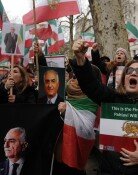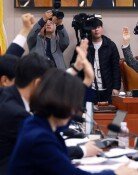[Op-Ed] Strikes
In an open seminar under the theme Problems in Labor Trials by a group of judges with progressive tendencies Saturday, Choi Eun-bae, chief judge of the Incheon District Court, asked himself, People say Korean unions are militant and are prone to going on strike. But is this true? Unfortunately, Choi moved on to another issue before answering the question, leaving the audience wondering whether Korean unions are really militant or not.
He mentioned side information that the likelihood of forming a union in Korea is below 10 percent, a figure below the average of the Organization for Economic Cooperation and Development, and that temporary workers in Korea get paid minimum wage without much resistance. He wanted to make an issue out of the presumption that Korean unions are militants, saying, Those who still believe unions are formed by militant workers who receive below average treatment seem to be living in the past, when barbarian capitalism was prevalent in the early 1800s, or during the Joseon Dynasty, when servants labored away without complaining to their masters.
His bottom line was that since Korea is the only country that considers an illegal strike as a criminal offense, such a legal reality should be addressed. In other words, the logic of allowing legitimate strikes and punishing illegal ones is a thing of the past, when workers were targets for exploitation. In a counterargument, Suwon District Court judge Lee Byung-hee said at the seminar, Such an argument will allow unions, which go on strike without grounds, to completely evade legal responsibility.
The New York Times has called France "a country free from unions since the likelihood of forming one is below eight percent. The French labor minister was also quoted as saying, It is better to be a temporary worker than having no work at all. The Korean legal system allows a strike for improving working conditions while prohibiting a politically motivated strike against the government, since political ideas can be expressed through elections as the result of the democratic movement of the 1980s. Judge Choi, however, said, It can be hardly said public consensus is properly reflected in Korean politics. Ironically, Choi, whose most famous book is a biography of labor activist Chun Tae-il, seems to be the one who is still living in the 1800s, when both globalization and democratization seemed far away.
Editorial Writer Kim Sun-deok (yuri@donga.com)







